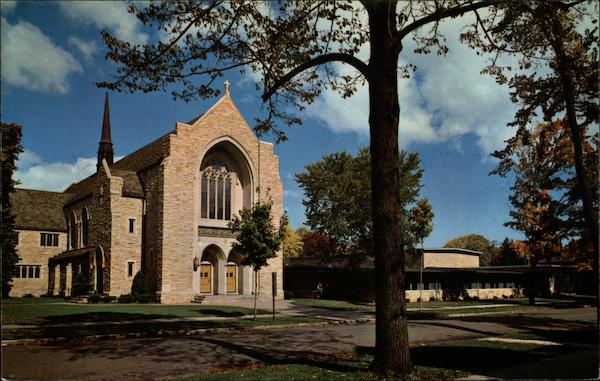Accountability

In my last article I detailed a way you could tell that “Progressive Christianity” was in fact an alternative to Christianity, namely that it held different things sacrosanct and considered other things blasphemous than Christians have since Apostolic times. This month I will note another way in which we can see this truth demonstrated—to whom and for whom progressive Christians feel responsible.
In a recent Core Christianity podcast, Pr. Adriel Sanchez detailed an encounter he had with a “progressive Christian” pastor. According to Pr. Sanchez, this pastor (who goes unnamed in the broadcast) was the author of a book arguing that the Bible does not proscribe homosexual behavior and that the Church had used the classic prooftexts in this regard to abuse same-sex attracted people since its inception. Since the pastor was a neighbor, Pr. Sanchez had acquired and read the book. His critical evaluation was that the “way in which he was approaching the Scriptures was incorrect; that rather than just letting them speak for themselves and understanding them in their context, he was twisting them and allowing—essentially—the current cultural social ethic to drive his interpretation of the Bible.”
Nothing too radical here. This kind of critique of another theologian has characterized necessary dialogue within the Church in every era, from Irenaeus to the present day, on issues as diverse as whether Christians can ethically serve in the military to the nature of Christ’s Deity. Indeed, though Pr. Sanchez has the advantage of time since the incident and not being engaged in a debate while presenting his story, he shows no non-verbal animosity while presenting his critique.
When he happened to have a chance meeting with this author in a local coffee shop, it seems that the conversation he engaged was handled civilly, if coolly, until Pr. Sanchez challenged the author on an issue core to their identity as pastors rather than mere theologians, pastoral rebuke as an expression of spiritual care. Pr. Sanchez asked him, “As a pastor, when you have someone in your church whom you believe is doing something that you do think is sinful—maybe they’re abusive to their spouse or maybe they’re stealing or whatever it might be—how do you confront them lovingly as a pastor while challenging the sinful behavior?” At that point his interlocutor after a moment of apparent shock said, “I can’t believe you asked me that question. That was an offensive question to ask me, and [essentially] you should be ashamed of yourself.” When Pr. Sanchez then tried to explain that he really did want to understand the other pastor’s position, the supercilious author declaimed, “No; you need to understand that you are offensive, and you need to accept that… and this conversation is over.” Upon which he stood up and left.
I do an extensive treatment of this episode in my own podcast, but to summarize my observations, the pastor who walked away from the conversation with Pr. Sanchez clearly did not feel accountable to him as a fellow clergyman or Christian, a member of the “One Holy Catholic [Universal] and Apostolic Church.” The issue of how to deal with these texts is a lively issue throughout the worldwide Church with most Christians (read: non-Western Christians) siding with Pr. Sanchez, but the other pastor still presumed to speak to him as a person possessing authority over him; “you need to understand… you need to accept.”
In what hierarchy did the author of the book possess more authority than Pr. Sanchez? Clearly not the hierarchy of the Church. To what community standards did this pastor feel accountable? Whose good opinion did he crave or perhaps fear losing? Again, not those of a Church whose existence preceded him and that will endure until Christ “comes again in glory to judge the living and the dead.” Did he by walking away from a conversation with a fellow bearer of the name of Christ show love for him, reason together with him, or even engage him in the sort of loving rebuke Pr. Sanchez queried him about to such great offense? Did he even from his own point of view show love for the same-sex attracted individuals whom Pr. Sanchez might encounter in the course of his ministry?
No, the community to which and for which this pastor felt accountable was clearly not the “beloved community” of those baptized into Christ, but rather defined in some other way.
Though they were heretics, Arius, Valentinus, and Pelagius knew that their primary accountability was to the Church of Jesus Christ. Though history has judged them to be in error, they fought for what they seem to have sincerely believed was its good and perhaps even what was necessary for the salvation of its members. Indeed, they garner the appellation “heretic” only because they so earnestly fought for and remain accountable to the life of the Church Herself—because they are at least erstwhile Christians.
I believe that Progressive Christianity functionally (if not formally) quickly ceases to be Christian in any historically recognizable way precisely because of what this pastor’s behavior demonstrated, that it considers itself—and more importantly, the Church’s proclamation—accountable to standards that originate outside the Church and people whose lives are lived beyond its bounds.










